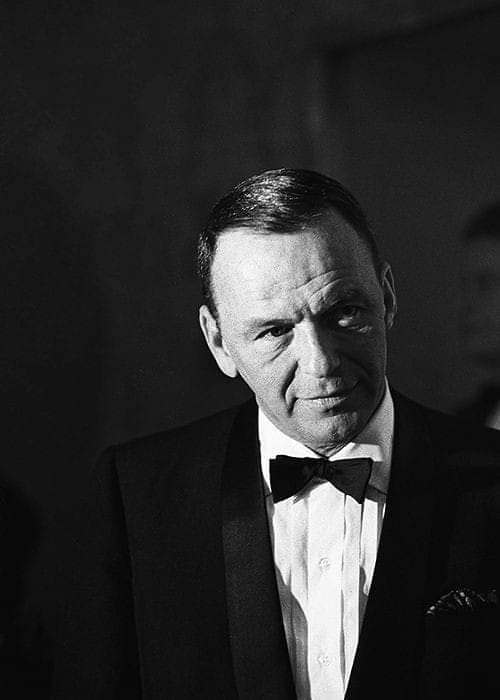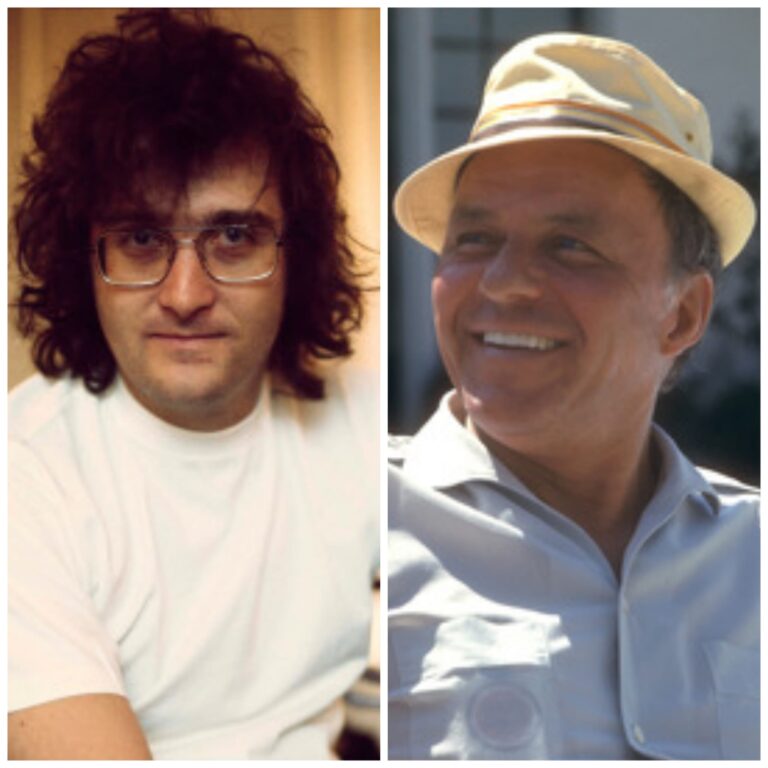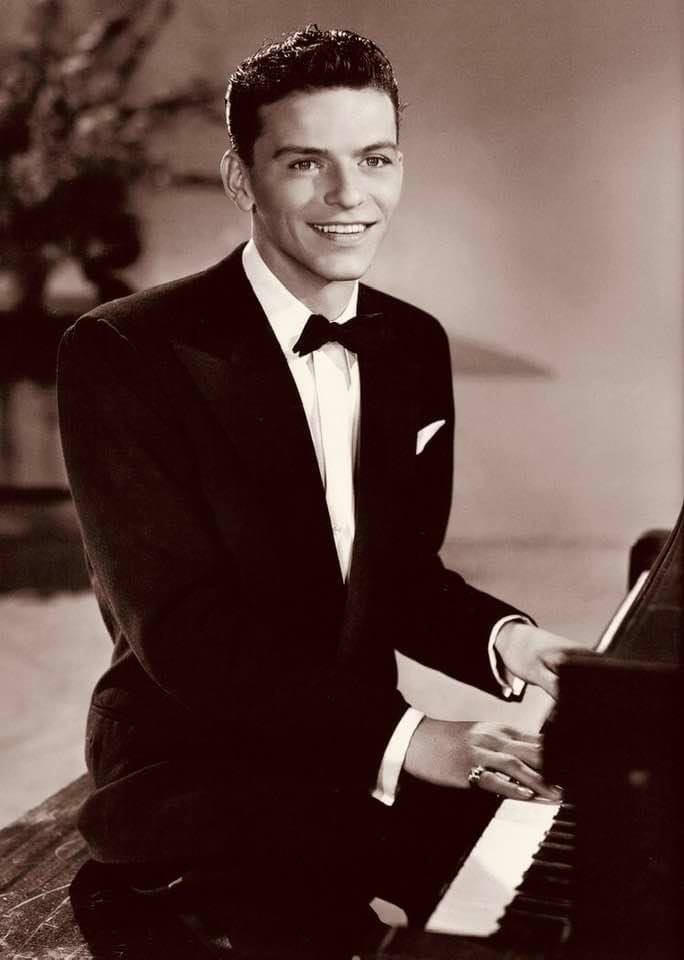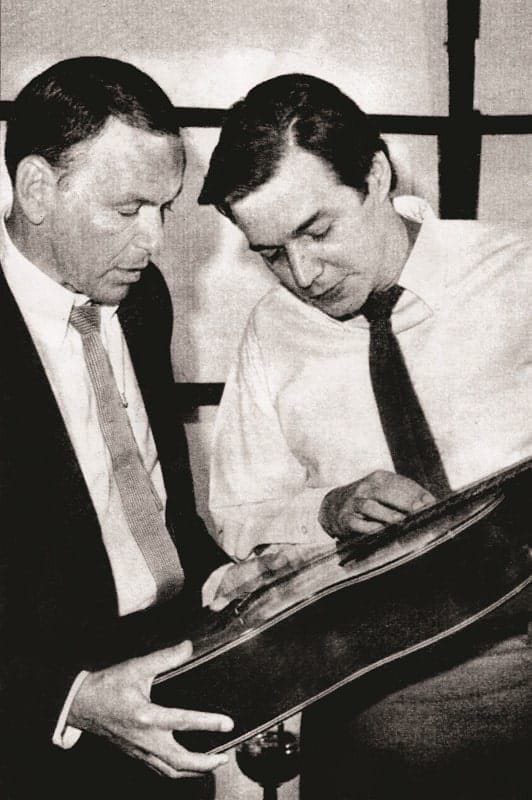
10 WAYS SINATRA CHANGED THE WORLD
Written by Elysa Gardner,
Published in USA TODAY on 12/9/2015
- HE MADE THE POPULAR SONG IMMORTAL.
Before Sinatra, notes Will Friedwald, author of the book “Sinatra! The Song Is You: A Singer’s Art,” “popular music preached the idea of change. No one thought of going back to the old songs of Gershwin or Jerome Kern,” or Cole Porter, whose “Night and Day” and “I’ve Got You Under My Skin” had been popularized by other artists. Over the years, Sinatra would revisit those songs and others he had already recorded, maintaining his place in the pop canon and finding new nuances and depths.
Listen to his 1946 studio recording of the Rodgers and Hammerstein epic “Soliloquy,” and then his more robust and wiser 1963 version with Nelson Riddle’s vigorous and stimulating arrangement. Or consider the various live and studio takes of Harold Arlen and Johnny Mercer’s “One For My Baby (And One More For the Road)” with their varying shades of alienation and melancholy, qualities that Sinatra conveyed more powerfully than any other singer.
- IT TURNED THE COMPOSERS INTO STARS.
A radio star in the 1940s, Sinatra offered segments on his shows celebrating certain composers, including the architects of what came to be called the “Great American Songbook.” As a live performer, throughout his long career he considered it important to recognize on-stage lyricists and composers—some of whom, like Sammy Cahn and Jimmy Van Heusen, were crucial in the singer’s progress in making songs tailored to he.
Sinatra also supported new creative talents that emerged during his long career, from Stephen Sondheim to Jimmy Webb and George Harrison.
Charles L. Granata, who wrote the essay “Frank Sinatra and the Magic Mystery of Radio” for the box set “Frank Sinatra: A Voice On Air (1935-1955),” notes, “All the composers I have spoken to who have “A song recorded by Sinatra is said to be the greatest compliment.”
- IT WAS ROCK AND ROLL BEFORE ROCK AND ROLL EXISTED.
Although Sinatra famously described it as being “sung, played and written by idiotic cretins,” it’s hard to imagine rock and roll, or contemporary pop stardom, without his example.
His raw sexual energy and intelligence – evident in his phrasing, even at the beginning – germinated in the bobby soxers (his teenage fans, named for their characteristic white socks, in English, “bobbysocks“. N.del T.). that prefigured those girls and women who screamed for Elvis, the Beatles and the rest.
Sinatra also carried his arrogant, irreverent attitude offstage: the various chronicles of his lewdness, his physical and verbal confrontations, and his troubles with the law rival those associated with anyone from Jerry Lee Lewis to Justin Bieber. .
- HE WAS A PIONEER OF THE CONCEPT ALBUM
Some critics consider his 1946 debut “The Voice Of Frank Sinatra” the first concept album.
Biographer James Kaplan quotes in his book “Sinatra: The Chairman” that “the term would not be coined until much later, but Sinatra invented the idea, and Nelson Riddle helped him refine it” in his later work. According to the parties involved, Sinatra played a key role in shaping the musical and emotional direction of his albums with Riddle and other arrangers, playing a more active role than previous singers. “More than any other artist of his time, he outlined what he wanted to hear,” says Granata, “and he adored musical talent.”
- HE CREATED THE “GANGS” OF CELEBRITIES
Long before Taylor Swift
When her colleagues began to be brought onto the stage, there was a platoon known (to outsiders) as the Rat Pack. Its original incarnation was governed by Humphrey Bogart, but it was under Sinatra’s leadership that the group – featuring Dean Martin, Sammy Davis Jr., Peter Lawford and Joey Bishop – gained wider attention and dominated in Las Vegas. His orgiastic adventures and childish antics on and off stage became a legend in the world of entertainment. In his book, Kaplan observes that the Rat Pack “was an idea rather than a reality,” formed at a time when 20th-century ideals of masculinity had not yet been subverted by the androgynous aesthetic of rock and roll.” Kaplan adds that Sinatra “always hated the name…since the word “rat” had negative connotations where it came from.”
- HE GAVE SOPHISTICATION TO LAS VEGAS (FOR A WHILE)
Forget, or at least try to put aside, the politically incorrect jokes of the Rat Pack and any connection with the Mafia, no matter how obvious. During Sinatra’s reign in Las Vegas, particularly before his brief “retirement” in the early 1970s, he made the city hum, bringing crowds of pageantry from all over, with Hollywood well-represented. And in the process, he made extraordinary music, evidenced by the 1966 live album “Sinatra At The Sands” recorded at that hotel-casino with the Count Basie Orchestra.
- HE FACED THE RECORD LABEL.
When Sinatra left Capitol Records — the second company, after Columbia, to release his records — to form his own label, Reprise, in 1960, “it sent shock waves through the industry,” recalls traditional pop star and archivist Michael Feinstein. Despite having such big names as Bing Crosby and Rosemary Clooney on board, Reprise suffered in sales because “Frank found himself in the strange position of having to create hits” – at the time, mainly rock music. The label was sold to Warner Brothers, where it became home to popular figures from Fleetwood Mac to Green Day. More significantly, Sinatra set an example for artists seeking greater professional autonomy, including icons like Madonna and Jay Z.
8. HE HELPED ELECT ONE OR TWO PRESIDENTS
Raised by a mother active in Democratic politics and a supporter of President Harry S. Truman‘s re-election in 1948 (and Adlai Stevenson’s subsequent unsuccessful bids for office), Sinatra was especially attracted to a young senator named John F. Kennedy. In his book “Sinatra: The Artist and The Man,” John Lahr writes: “The 1960 presidential election, which Kennedy won by only 118,500 of more than 68 million votes, was influenced by Chicago’s West Side, controlled by the mafia, whose support was mobilized thanks to the efforts of Sinatra.” Other accounts have gone into more detail, most of them portraying Kennedy’s friendship with the fascinated pop star as opportunistic and mercurial. Sinatra would later support a Republican, Ronald Reagan, in his campaigns for governor and then president.
9. HE HELPED INTEGRATE AMERICAN MUSIC
A supporter of civil rights from the beginning, Sinatra used his influence to promote African-American musicians. Wynton Marsalis notes that his mentor, trumpeter Harry “Sweets” Edison, frequently worked with Sinatra. “Sweets said that during a time when America was segregated, Frank Sinatra made sure that black musicians were well paid and treated with respect.” Quincy Jones recalls that when he and Basie’s orchestra joined Sinatra in Las Vegas in 1966, the city “was still segregated. And I mean very segregated. Frank assigned a very imposing bodyguard to each member of the band and gave them orders. to break the nose of anyone who looked at us badly.
- HE MADE THE SINGER CARE
There were many great singers before Sinatra, and he learned a lot from some, like Crosby and Mabel Mercer, as well as his contemporary Billie Holiday. But Sinatra, in gaining the stature that he did, cemented the notion of the performing singer as an autonomous musician, serving the song but also owning it, at least for the duration of a performance. In our post-Simon Cowell era, when pop singers are often treated as vessels for producers and valued for their ability to perform tricks and “project attitude,” Sinatra’s music reminds us of the power of vocal skill and honest expression, and that the two are not mutually exclusive.
If you want to visit more articles about the life of Frank Sinatra enter the following Sinatra Radio 24h link: https://sinatraradio24h.com/category/articles/
We remind you that you can also listen to Sinatra Radio 24 hours on your mobile phone by downloading our free applications for Android in the Play Store https://play.google.com/store/apps/details?id=sinatra.radio24h for iPhone in the Apple Store https://apps.apple.com/app/sinatra-radio-24h/id6599859344








